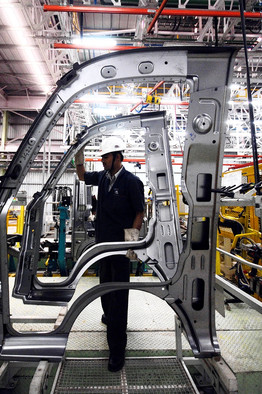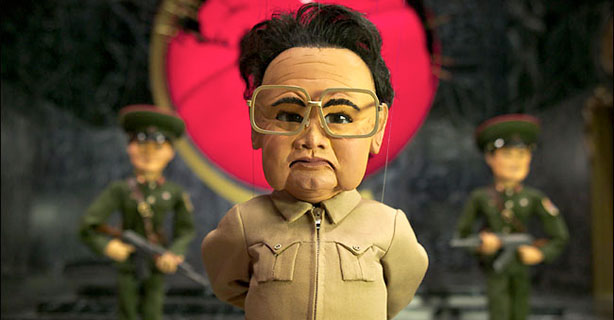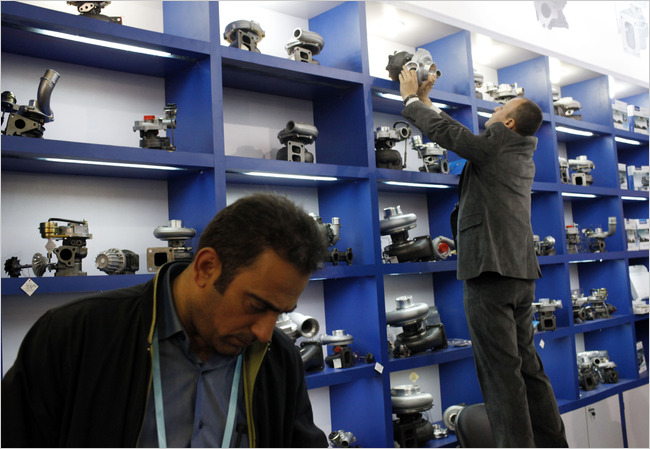 Theme of mine going back to Blueprint: You squeeze al-Qaeda out of the Middle East progressively (thanks in large part to the middle-aging of the population and globalization's penetration and whatever success in democratization out of the Big Bang beyond Iraq) and it naturally gravitates in two directions (paths of least resistance--namely to the NE and Central Asia via Af-Pak or to Africa. These two regions provide the bulk of Paul Collier's "bottom billion," and many are, in my vernacular, "fake states" created by outsiders (Europeans in Africa, Brits and Stalin in SW/Central Asia).
Theme of mine going back to Blueprint: You squeeze al-Qaeda out of the Middle East progressively (thanks in large part to the middle-aging of the population and globalization's penetration and whatever success in democratization out of the Big Bang beyond Iraq) and it naturally gravitates in two directions (paths of least resistance--namely to the NE and Central Asia via Af-Pak or to Africa. These two regions provide the bulk of Paul Collier's "bottom billion," and many are, in my vernacular, "fake states" created by outsiders (Europeans in Africa, Brits and Stalin in SW/Central Asia).
So you get two similar strategic flanking maneuvers by great powers: Shanghai Cooperation Organization in Central Asia (Russia and China lead) and America's Africom in Africa.
For a long time, even the precursor US effort in Africa (Combined Joint Task Force-Horn of Africa, which I wrote about in Esquire (see "The Americans have landed")) was considered a bit of overkill. Simply put, there weren't hardly any terrorists to work, outside of the foreign fighters in Somalia by way of Yemen.

This Economist article suggests that a critical mass is appearing in West Africa, or at least enough activity to become an organizing impetus for regional cooperation--naturally with Africom involved:
OPERATION Flintlock has begun. American special forces have been descending on Burkina Faso, Mali, Mauritania and Senegal in a joint exercise, expected to last another week or so, to combat Islamist terrorism in the region. It is the latest stage of an evolving partnership between America and much of west Africa. Over several years, Americans have been training their counterparts in these countries in everything from marksmanship and parachuting to the more touchy-feely stuff of winning over hearts and minds.
When the Americans first started talking about al-Qaeda’s threat in the Sahara, many were sceptical. But a sharp increase in the rate of attacks in the past 18 months by what the jihadists call “al-Qaeda in the Islamic Maghreb”, usually abbreviated to AQIM, have convinced even cynics that a threat of sorts does exist.
When AQIM emerged three years ago out of a ruthless Algerian guerrilla outfit called the Salafist Group for Preaching and Combat, better known by its French abbreviation GSPC, it seemed intent on uniting north African jihadists to wage war on Europe. It has largely failed on that score, having been squeezed by Algeria’s security forces, who have broken up many of its cells. Instead, the group is now concentrating on softer targets in a belt of countries farther south.
Armies in the Sahel, that wide stretch of land just south of the Sahara, have increasingly often clashed with Islamist fighters.
A lot of AQIM activity is typically banal, as in, kidnapping Westerners for ransom (not exactly a new trick for the neighborhood), so we already see some obvious devolution into organized crime. Then there's the usual drug trade.
What AQIM brings to the table beyond criminality is the playing on local grievances (there is never a shortage of causes "celebre").
To be monitored.
 Wednesday, May 26, 2010 at 12:04AM
Wednesday, May 26, 2010 at 12:04AM  WSJ story.
WSJ story.































